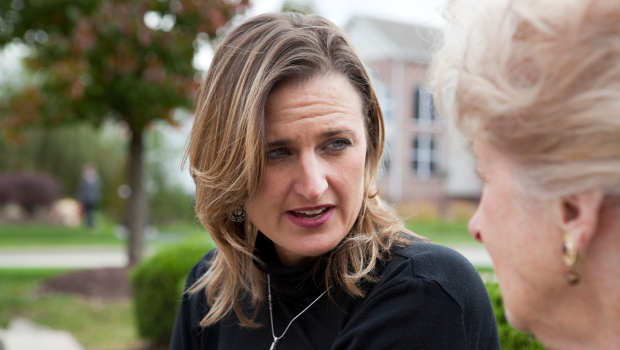Early signs of cognitive impairment? Learn about Your Life, Your Choices

If you or a loved one is experiencing cognitive impairment or even early signs of Alzheimer’s disease or another form of dementia, now is a good time to start talking with your health care providers and family members about advance care planning.
What is advance care planning?
Advance care planning (ACP) is a discussion about the kinds of medical care a person would want as they near the end of their life or lose the ability to make their own health care decisions. ACP usually includes conversations with the patient and his or her family members and health care team. Among the questions ACP addresses are:
- What kind of care do you want now?
- What kind of care do you want in the future if you become seriously ill and can’t speak for yourself?
- Where do you want to live, and who do you want to care for you?
- What kinds of major medical treatment do you want—or not want—as you approach the end of your life?
What is the Your Life, Your Choices workshop?
Your Life, Your Choices is a free two-hour workshop offered at several Kaiser Permanente clinics in Western Washington and in Spokane. The goals of the workshop are to help people:
- make informed decisions about their end-of-life care;
- have important conversations with their loved ones; and
- document their wishes so their families and providers know the choices they’ve made.
The workshops are offered in the spring and fall. You don’t have to be a Kaiser Permanente member to participate, and you can bring a guest at no charge. Visit Kaiser Permanente Washington's website to learn more.
Registration is required. For more information and to register, call the program coordinator at 1-866-458-5276 or send an email to yourlifeyourchoices@ghc.org.
Why is ACP important for people with early cognitive impairment?
Ideally, ACP conversations will happen when people can clearly express their wishes and actively participate in their health care decisions. That’s why ACP is so important for people who have early signs of Alzheimer’s disease or another form of dementia. It gives them a chance to make their wishes known and fill out advance directive forms while they are still able to do so. This helps ease the burden for loved ones who must step in to make decisions about their health care in the future.
“It’s difficult for all of us to talk about end-of-life care,” explains Dr. Barbara Walker, a Kaiser Permanente physician in hospice and palliative care. “But it’s especially important for people who might have dementia to talk about ACP when they still have full decision-making capacity. I tell patients that talking about care preferences is something you do for your loved ones because it’s easier to make decisions for yourself than to make them for someone else.”
Learn more
Forms you might need:
- Durable Power of Attorney
A legal document in which a person designates someone to act in their place should they ever become mentally incapacitated or otherwise unable to participate in decision making. - Living Will
A written statement that defines a person’s preferences for medical treatment in case they aren’t able to provide informed consent. - Physician Order for Life Sustaining Treatment
A single-page form that summarizes a person’s immediate wishes for end-of-life care. The form is a medical order that is signed by a doctor, PA-C, or ARNP and is effective across the medical community (including paramedics, fire departments, emergency rooms, hospitals, and nursing homes.) The patient and provider should fill this form out together.
Health and wellness resources from Kaiser Permanente:
- Advance Directives and End-of-Life Decisions
- What is Alzheimer’s Disease?
- What is Dementia?
- Warning Signs of Dementia
- Dementia: Legal Issues
- Care at the End of Life
More resources for caregivers from Kaiser Permanente:
- Alzheimer’s Caregiver Support Group
- Early-Stage Dementia: Information for Caregivers
- Later-Stage Dementia: Information for Caregivers
Other resources for families and health care professionals:
- Advanced Dementia: A Guide for Families (PDF, 670KB)
- Demencia Avanzada: Una Guia Para Familiares (PDF, 2.47MB)
- How to Talk to Families About Advanced Dementia: A Guide for Health Care Professionals (PDF, 2.44MB)
The information on this page was developed based on focus group research that explored when and how people with early signs of cognitive impairment want to learn about ACP. The research is part of a project funded by the Partnership for Innovation and led by Dr. Walker and KPWHRI Associate Investigator Robert Penfold, PhD.
Video
Research on healthy aging
Advance Care Planning
How can we make advance care planning easier for patients and families?
Dr. Robert Penfold talks about how his father’s death inspired him to work on advance care planning for people with mild cognitive impairment.
Read about it in Healthy Findings.



